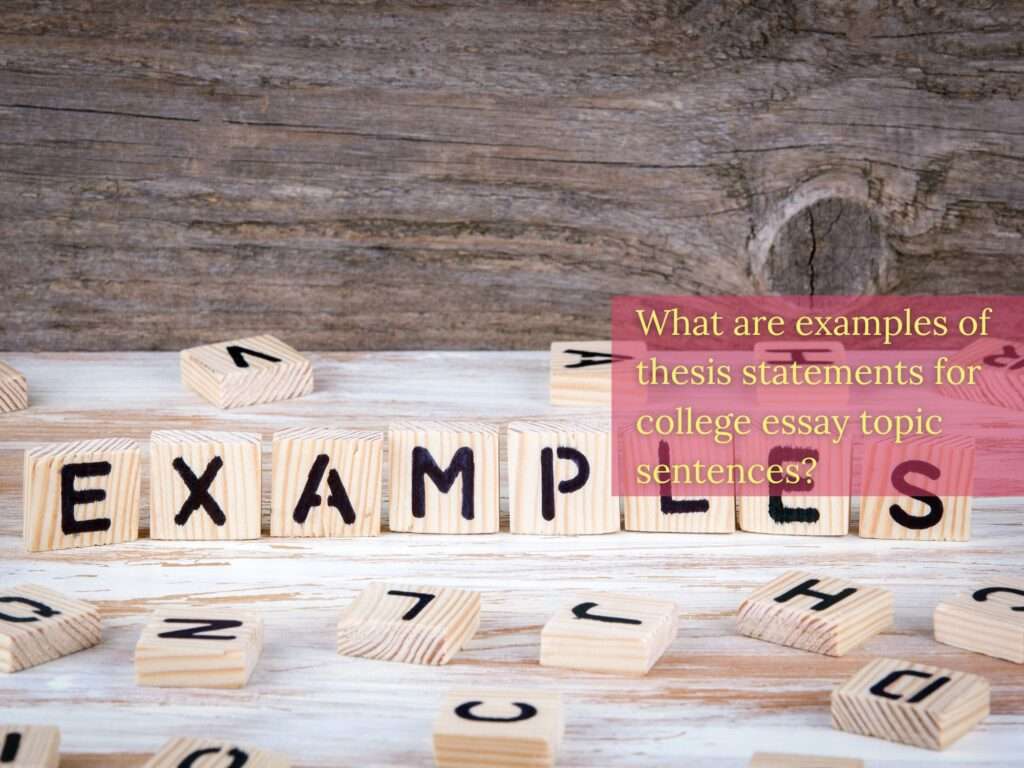Introduction
Writing a college essay? Don’t worry, it’s easy to start! We’ll show you 8 simple steps to write a great thesis statement.
It’s like a map for your essay, making sure you stay on track. We’ll help you make it clear and strong, with your own personal touch.
Ready to make essay writing a breeze? Let’s go!
Does a Thesis Statement for Topic Sentences have to be Hard to Write?
No, it doesn’t have to be hard to write. Here at India’s BoardPlus, we heavily recommend that you create a simple thesis that will not only be easy for you to understand but also simple enough for the admissions committee reading your essay to remember.
What is The Simplest Formula to Create a Thesis Statement?
Creating a thesis statement can be distilled down to a simple formula. Consider the phrase, ‘I play dodgeball.’
In this context, ‘I’ represents the overarching idea. The word ‘play’ signifies a personal story or a personal opinion while ‘dodgeball’ symbolizes the subject of debate.
These elements collectively define the essence of a thesis statement. They serve as the foundation for the topics and themes that should be explored in your admissions essay.
How to Make It even Easier to Create a Thesis for Your Topic Sentences?
Imagine you’re building a house, but instead of a house, it’s your thesis.
You start with a blueprint. This blueprint doesn’t have to be perfect; it’s just a rough sketch of your ideas.
Think of a big idea you want to talk about, like a main room in your house.
Then, add a personal story or opinion, like decorating that room with your favorite things.
Next, introduce an idea that could start a discussion, like a unique feature of your house.
At this stage, don’t worry about the grammar or how your sentences are structured. It’s like building a house with blocks; you can always rearrange them later.
Remember, this is just the first step. You’ll have a chance to make your thesis better, just like how you can always improve your house.
When you reach the revision section, you will want to pay attention to grammar rules to make sure your writing is clear and interesting. This way, you’ll end up with a thesis that’s as impressive as a well-built house.
Benefits of Writing a Thesis Statement as Easily as Possible
Writing a thesis statement as simply as possible has several benefits:
- It’s an easy process that doesn’t require excessive thought or stress. This simplicity allows you to avoid unnecessary strain as a student. You don’t have to worry about complex language or convoluted ideas. Instead, you can focus on conveying your main argument clearly and straightforwardly.
- A simple thesis statement is often more effective. When your writing is easy to understand, your readers are more likely to grasp your argument. They won’t have to struggle through complicated language or complex ideas, which can enhance their comprehension and engagement with your work.
- Writing a simple thesis statement can save you time. You won’t have to spend hours, or even days, trying to craft the perfect sentence. Instead, you can devote that time to other aspects of your academic work or personal life.
Common Mistakes You Want to Watch Out For When Building a Thesis for Topic Sentences

Failing to Make It Clear and Easy to Understand
A common pitfall to avoid when crafting a thesis statement is a lack of clarity. When your thesis lacks clarity, it can confuse the readers of your admissions essay.
They might find themselves asking, ‘What is the candidate trying to say with this thesis?’
Misinterpretations can occur if the ideas you present are not clear. The readers might not understand your exact meaning, or they might have additional questions.
Therefore, it’s crucial to create a thesis that leaves no room for ambiguity. The goal is to make it so straightforward that anyone reading your essay will understand exactly what you, the candidate, are trying to convey at that particular point in time.
The thesis should be easy to understand and devoid of any ambiguity.
Absence of a Personal Story or Opinion
Remember, you’re crafting an admissions essay. This is a personal endeavor, and your thesis, like your essay, should reflect that.
It’s essential to include a personal touch in your thesis statement. This could be a personal story or opinion that resonates with the fundamental reason why an institution asks for an admissions essay.
Avoiding personal elements won’t make your thesis relatable. You want to establish a connection with your readers. Your personal opinion can serve as a bridge to your readers, allowing them to understand your perspective.
Admissions officers delve into your essay to get a glimpse of who you truly are. It’s crucial to let them see your authentic self. Failing to include a personal story or opinion leaves them in the dark about your beliefs and stance.
Being comfortable with expressing your views is vital. That’s why choosing the right topic is key. We delve into the details of how to select the right topic in a previous blog post.
Failing to Fulfill the Main Reason Behind Writing a Thesis Statement
If you don’t express the main message in your essay, then it will be a poorly constructed thesis that will end up being ineffective.
It’s like watching a movie without watching its trailer or reading its synopsis. You won’t know if the movie you are watching will be a good one or not for your tastes, unless, of course, it comes from a production company or studio you love. But these days, does it really matter?
The main message is the key to a good thesis and a good thesis makes for a good essay.
So, remember, the central message is very important. It allows the thesis to function like a map for your essay allowing the thesis to show the way for your words and ideas.
Crafting Thesis Statements that are Lacking in Confidence and Zeal on Your Topic
When writing, it’s crucial to choose words that express your enthusiasm and passion. Your essay should reflect your excitement and convey the main idea with conviction.
If your words lack this energy, readers may doubt your confidence and commitment to the subject. They might suspect you’re echoing someone else’s thoughts or telling them what you think they want to hear.
Instead, you should communicate your genuine beliefs and feelings. When you truly believe in your message, your excitement shines through naturally.
To emphasize your confidence and zeal in your thesis statement, use powerful and positive words like “incredible,” “magnificent,” “biblical,” “phenomenal,” or “tremendous.” These words will do a good job of reinforcing the central message you aim to share.
What is a Thesis Statement in a College Essay?

A thesis statement in a college essay is a short yet descriptive sentence or two that encapsulates the main argument or point of your essay. It typically appears at the end of the introductory paragraph, serving as a guide for the reader to understand the central focus of your essay.
The thesis statement sets the tone for the entire piece, indicating the direction and purpose of your writing. It’s important to craft it carefully to ensure it clearly communicates your essay’s core message to the admissions committee.
What are the Types of Thesis Statements?
There are three kinds of thesis statements as identified by Thesaurus you might write for an essay: analytical, explanatory, and argumentative.
An argumentative thesis is a statement or two that points out your opinion on a certain subject matter and you MUST offer evidence that supports the perspective in the rest of the essay.
An analytical thesis is like a puzzle. You take a big idea and break it into pieces to look at each one closely. This helps you and your readers understand the whole idea better. In other words, it asks “how” and “why” something is true.
An explanatory thesis is like giving directions or explaining a recipe. You give your readers the basic parts of your main idea. Then, you show them how these parts fit together to make sense of the whole thing. In simple terms, an explanatory thesis tells “what” is true clearly and simply.
Our Recommendations for Creating a Strong Thesis
Imagine you’re building a house. The thesis statement is like the foundation—it needs to be strong and well-built. Just like a house, your essay stands on the thesis, so it has to be solid.
- Make sure your thesis is clear and focused. It should be like a flashlight in the dark, guiding the reader through your essay. It’s not just any idea; it’s your idea, mixed with your personal story, making it unique and interesting.
- Add some spice to it! Use words that are lively and full of energy. This makes your essay more fun to read and shows you’re really into the topic.
- Back up your thesis like it’s your best friend. Provide evidence, examples, and facts that support it throughout your essay. This way, your thesis isn’t just a statement—it’s a statement with a strong team behind it.
Remember, a great thesis is specific, passionate, and well-supported. It’s the heart of your essay, pumping life into every part of it. So, take the time to make it great!
Steps to Creating a Thesis for Essay Topic Sentences

Step 1: Think about the Central Idea of Your Essay
The first step in crafting a thesis for your essay is to pinpoint the central idea. This is the Yggdrasil or the foundation of your thesis—the main theme, point, or message you want to communicate to your readers.
To find this, simply ask yourself: What is the topic of my essay? What am I trying to say about this topic?
For instance, if you’re exploring the concept of education, don’t just think about its value. Instead, delve deeper.
You might consider the question, “What is true education?” From there, you could decide that “True education is an ongoing journey that happens even without supervision”. This becomes your central idea.
It’s okay if it’s not perfect at first; the important thing is to start with a clear main idea that you can refine as you develop your essay.
Step 2: Write Down the Central Idea on a Paper
Writing down your central idea on paper is indeed a great strategy. It’s like sketching a blueprint before building a house.
When you jot down your thoughts, you create a visual reminder of what you’re aiming to develop.
This rough draft becomes a reference point, ensuring you stay focused on your main theme. It also saves you from the trouble of having to recall your core concept if you forget it, which can be a stressful and daunting task.
So, grab a pen and paper, and let your ideas flow! This simple act can transform the abstract into something tangible, setting the stage for a well-structured and coherent essay.
Step 3: Think of a Strong Opinion or a Short Personal Anecdote You have Related to The Central Topic
To add depth to your essay, it’s effective to include a strong opinion or a personal anecdote that relates to your central theme.
For example, working with our essay’s main idea “True education is an ongoing journey that happens even without supervision,” we can have a story about someone we admire, like an elder brother who left traditional schooling to dedicate himself to learning skills for his business.
This story illustrates the concept of self-directed education and makes your essay more relatable and memorable.
Remember, at this stage, your story doesn’t need to be perfect or full of details. It’s part of the drafting process, where ideas are still taking shape.
Whether you choose to share a personal story or express a strong opinion about the value of education, the goal is to communicate your beliefs effectively. Both approaches can be equally powerful in conveying your message.
Once you’ve crafted your story or opinion, write it down. This ensures you won’t forget the essence of what you want to say as you continue to develop your essay.
Writing it down also helps you to refine and polish your thoughts, turning the rough draft into a compelling part of your final essay.
So, take a moment to put pen to paper and capture your ideas. It’s an important step in creating an engaging and thoughtful admission essay.
Step 4: Think about a Topic that would Spark a Slight Debate with Your Audience
Incorporating a topic that invites a mild debate is a strategic way to engage your audience. It’s about finding a balance—you aim to provoke thought, not controversy. You want to encourage your readers to ponder and question, to engage in a healthy exchange of ideas without causing division.
For instance, working with our central idea that states “True education is an ongoing journey that happens even without supervision,” you might propose that “The key to financial independence lies not within the walls of a classroom, but in the proactive steps one takes to build a career outside of the prescribed curriculum.” This statement is designed to spark curiosity and dialogue, not to shock or alienate. It invites readers to consider their views on education and its role in achieving financial freedom.
By presenting your perspective respectfully and modestly, you create an open space for discussion. This approach allows you to share your thoughts without imposing them, fostering a conversation rather than a confrontation.
Remember, the goal is to stimulate a thoughtful debate that enriches the reader’s understanding of your essay’s main theme.
Step 5: Bring It All Together
To create a cohesive and compelling thesis statement, it’s essential to merge your ideas into a clear and concise narrative. Here’s a refined version of the draft we were working on that maintains specificity and exudes confidence:
“Observing my elder brother’s unwavering dedication to self-education in digital marketing after leaving his business administration studies, I’ve gained a profound insight: true financial freedom is not tethered to the traditional education system but is forged through endeavors beyond the classroom. I am eager to explore the concept that genuine education is an endless journey, one that flourishes without formal oversight.”
This revised thesis statement weaves together the personal anecdote, the debatable point, and the central theme seamlessly. It uses specific details like “digital marketing” and “business administration” to add depth, while phrases like “unwavering dedication” and “profound insight” convey a strong sense of conviction. By doing so, it sets a solid foundation for an essay that is both engaging and authoritative.
Step 6: Place The Thesis at The End of The Introductory Paragraph
When you’re writing the beginning of your essay, the introduction, you want to end it with a strong sentence or two that tells the reader what your essay is about. This is your thesis statement.
But if your thesis statement is long, you can use it as the whole introduction. Just start with something interesting to catch the reader’s attention, and then lead into your thesis. This way, your reader knows exactly what to expect from your essay right from the start.
Remember, the start of your essay should grab the reader’s interest and clearly lay out the main point of your essay. Whether your thesis is just at the end of the introduction or the whole introduction itself, make sure it’s easy to understand and draws the reader in. This will make them want to keep reading.
Step 7: Continuously Refine your Thesis as You Write Your Essay
Refining your thesis statement as you develop your essay is a key part of the writing process. Think of your thesis as the backbone of your essay—it should support everything else around it.
As you write and expand on your topic sentences and paragraphs, you might find new insights or directions. If that happens, go back and tweak your thesis to make sure it still fits well with the rest of your essay.
Here’s a simpler way to put it: Keep checking that your main point—the thesis—matches the rest of your essay as you write. If you add new ideas or change how you’re explaining something, update your thesis to match.
This keeps your essay strong and makes sure everything ties together nicely. It’s like making sure all the pieces of a puzzle fit just right. That way, when someone reads your essay, everything flows smoothly from start to finish.
Step 8: Ask for Feedback
Seeking feedback is a brilliant move. It’s like having a team of coaches for your essay.
Share your thesis statement with people you trust—parents, friends, mentors, counselors. Ask them how it sounds to them. Does it tell your story well? Does it get the main point across clearly? You’re not looking for a heated debate, just a friendly discussion that can lead to useful insights.
Their responses will help you refine your thesis and, ultimately, your entire essay. It’s like getting a test run before the big race. Their advice can guide you to write an essay that truly reflects who you are and what you believe, making your application stand out.
Remember, the best essays are not just written; they’re rewritten, and shaped by thoughtful feedback.
What are Some Examples of Thesis Statements We have for Your College Essay Topic Sentences?

Example 1: Environment Degradation
“Our local green spaces are in trouble, and it’s time we do something about what we eat. After helping out on a farm, I saw how eating food grown close to home can really help our planet. In my essay, I’ll discuss how picking local vegetables and fruits can make a big difference for our earth and our health.”
It sets the scene by introducing the central theme, which is how the picking of local vegetables and fruits can make a big difference for our earth and health.
The writer then personalizes this theme by sharing a personal story about working on a farm, which helps to illustrate the point and make it relatable.
Let us not forget the presence of debate which is illustrated when the writer claims that our local green spaces are in trouble, and it’s time we do something about what we eat.
This structure not only informs the reader about what to expect but also engages them by weaving in a narrative element and not to mention, encourages the exchange of ideas by including the debating sentence.
It’s a great way to ensure clarity and maintain the reader’s interest throughout the essay.
Example 2: Favorite Movie
“‘The Secret Life of Walter Mitty’ isn’t just a movie about daydreams; it’s a journey that shows us the magic of stepping out of our comfort zones. After rewatching it for the fifth time, I realized that real adventures begin when we dare to chase the dreams we usually only imagine. My essay will argue that this film isn’t just entertaining—it’s a call to action for anyone who’s ever felt stuck in life.”
The author’s approach to crafting a thesis statement for an essay on “The Secret Life of Walter Mitty” is a great example of how to engage readers and set the stage for an argument.
The author starts by providing context about the movie, which is crucial for readers who may not be familiar with it. Also, this part of the thesis statement functions to spark curiosity by encouraging readers to engage in a healthy debate.
The personal connection is introduced when the author shares their own experience of watching the movie multiple times, leading to a realization about the nature of adventure.
Finally, the author clearly states the intention to argue that the film is more than just entertaining; it serves as a call to action for those feeling stuck in life.
This thesis statement effectively communicates the central theme of the essay and promises an exploration of the film’s deeper impact on viewers. It’s a well-structured thesis that invites readers to consider their perspectives on the film and its message.
Exercises to Test Your Understanding of the Information Shared Today!

Kindly attempt to only write the thesis statement of the below essay prompts to test your understanding of the information shared today. Feel free to submit your thesis statements for review in this blog post’s comments section and we shall get back to you as soon as possible. All the best!
Time Capsule Prompt
Imagine you have the chance to bury a time capsule that won’t be opened for a hundred years. What one item would you choose to represent your life and aspirations, and why? Discuss how this item reflects your personal journey and your hopes for the future.
The Dinner Party Prompt
If you could host a dinner party with any three figures from history, who would you invite and what would you hope to learn from them? Reflect on how their experiences might inspire your own path in life and education.
The Soundtrack of Your Life Prompt
Choose three songs that you would consider the soundtrack of your life so far. Explain the significance of each song and how they collectively narrate your past experiences, present endeavors, and future ambitions.
Best Practices of Thesis Statements and Topic Sentences in a College Essay

Below we cover the best practices of both thesis statements and topic sentences but sadly don’t discuss how to create a topic sentence for your college essay. If you would like to know how to create college essay topic sentences, feel free to read our blog post on that.
Ensure They are ALWAYS CONNECTED
The key to writing a compelling college essay is to ensure that your thesis statement and topic sentences are closely linked. The purpose of a thesis statement is to set the stage for your essay by outlining the central idea you will discuss.
Each topic sentence should then introduce a new paragraph that expands on this idea, providing evidence and analysis that support your thesis. If your topic sentences do not align with your thesis, your essay will lack coherence and cohesion, which can be problematic by making the entire essay irrelevant, especially in an admissions essay.
To avoid this, make sure every paragraph and topic sentence connects back to your thesis statement, ensuring a unified and effective essay.
Keep Both of Them Clear and Simple to Understand
For a successful admissions essay, clarity is key. Your thesis statement and topic sentences must be unmistakable and straightforward. The admissions committee should grasp your intended meaning without confusion.
Avoid complex jargon; it doesn’t enhance an essay but complicates it. Simplicity in language facilitates a smoother writing process and increases the likelihood of crafting an effective thesis and topic sentences.
These two elements are the foundation of your essay, guiding the reader through your arguments. A clear thesis sets the stage, while coherent topic sentences ensure each paragraph aligns with your overall message.
This approach not only makes your essay more accessible but also strengthens your argument, making it more persuasive to the admissions committee.
Ensure Your Topic Sentence ALWAYS Introduces What You will Cover in a Paragraph
A topic sentence is like a sign at the start of a paragraph. It tells you what the paragraph is about, just like a sign on the road warns you about bumps ahead.
This helps you get ready for what you’re going to read, just like you get ready to slow down for the bumps. It’s important because it helps you follow the writer’s ideas without getting lost or surprised.
Think of it as a helpful hint that makes reading easier and clearer.
Make Sure to Create a Sketch For Both Your Thesis and Essay Topic Sentences
Just like the steps we’ve discussed, it’s important to draft a sketch of your thesis and topic sentences. This sketch acts as a blueprint, helping you focus on the core message of your essay.
By honing in on this central idea, you can then polish and enhance your writing. This makes your essay not only more professional but also more compelling to the admissions committee who will be reviewing your application.
Remember, a clear and well-structured thesis and topic sentences are key to capturing and maintaining the interest of the admissions committee.
Conclusion
In conclusion, writing a thesis for your college essay doesn’t have to be a struggle. By following our 8 straightforward steps, you can craft a thesis that’s not only easy to understand but also packs a punch.
Remember, a clear thesis is like a guiding star for your essay—it keeps you focused and illuminates your path. So, take these tips, refine your statement, and watch your essay shine with coherence and depth.
Happy writing!
FAQ
How do you write a thesis statement for a topic sentence?
When crafting a thesis statement for a topic sentence, remember these six key points:
- Start with a big idea that captures the essence of your essay.
- Include a personal story or opinion to add depth and interest.
- Formulate a debatable concept to engage your readers.
- Keep it concise and memorable; a snappy statement sticks with the reader.
- Place your polished thesis statement at the end of your introduction to lead into the body of your essay effectively.
- Continuously refine and specify your thesis to avoid vague generalizations, making it as strong and clear as possible.
These steps will help you create a thesis statement that is both compelling and clear, guiding your readers through your essay with ease.
How do you write a topic sentence for a college essay?
To write a clear topic sentence, first decide what you want to say in your paragraph. Make sure this main point connects well with the thesis statement at the end of your introduction. This link ensures that your paragraph supports the overall argument or message of your essay.
How to start a thesis statement?
When beginning your thesis statement, focus on the central idea you want to convey. This is the heart of your thesis statement and your essay. It’s the main message that guides your writing.
Without a clear central idea or theme, your essay lacks direction. The thesis statement is your chance to present the core reason for your essay, and it should clearly communicate the key message you intend to share with the admissions committee.
Do college essays need a thesis statement?
A thesis statement is essential in college essays. It acts as a foundation, providing coherence and cohesion. It communicates the main point to the reader before they dive into the details.
By setting the stage, it prepares the reader mentally for the ideas and arguments they are about to encounter in your essay. Think of it as a preview that helps the reader understand and engage with your writing from the very beginning.

